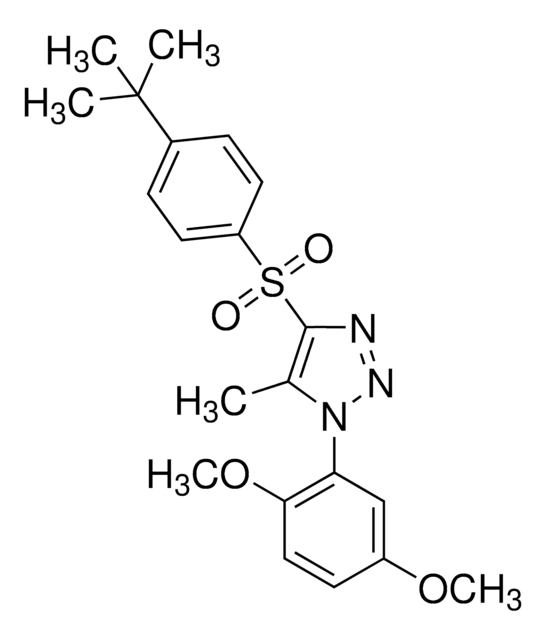ABN2268
Anti-proSAAS
serum, from rabbit
Sinónimos:
IA-4, Proprotein convertase subtilisin/kexin type 1 inhibitor, Proprotein convertase 1 inhibitor, pro-SAAS
About This Item
Productos recomendados
origen biológico
rabbit
forma del anticuerpo
serum
tipo de anticuerpo
primary antibodies
clon
polyclonal
reactividad de especies
rat, human, mouse
envase
antibody small pack of 25 μL
técnicas
immunocytochemistry: suitable
immunofluorescence: suitable
western blot: suitable
isotipo
IgG
Nº de acceso UniProt
modificación del objetivo postraduccional
unmodified
Información sobre el gen
human ... PCSK1N(27344)
Categorías relacionadas
Descripción general
Especificidad
Inmunógeno
Aplicación
Immunofluorescence Analysis: A representative lot detected proSAAS in Immunofluorescence applications (Jarvela, T.S., et. al. (2016). Proc Natl Acad Sci USA. 113(32):E4708-15; Hoshino, A., et. al. (2014). J Neurochem. 128(3):419-30; Guest, P.C., et. al. (2002). J Endocrinol. 175(3):637-47).
Western Blotting Analysis: A representative lot detected proSAAS in Aβ immunoprecipitated from mouse brain lysates (Hoshino, A., et. al. (2014). J Neurochem. 128(3):419-30).
Immunocytochemistry Analysis: A representative lot detected proSAAS in SH-SY5Y cells (Jarvela, T.S., et. al. (2016). Proc Natl Acad Sci USA. 113(32):E4708-15).
Neuroscience
Calidad
Western Blotting Analysis: A 1:10,000 dilution of this antibody detected His-tagged mouse proSAAS recombinant protein.
Descripción de destino
Forma física
Almacenamiento y estabilidad
Otras notas
Cláusula de descargo de responsabilidad
¿No encuentra el producto adecuado?
Pruebe nuestro Herramienta de selección de productos.
Certificados de análisis (COA)
Busque Certificados de análisis (COA) introduciendo el número de lote del producto. Los números de lote se encuentran en la etiqueta del producto después de las palabras «Lot» o «Batch»
¿Ya tiene este producto?
Encuentre la documentación para los productos que ha comprado recientemente en la Biblioteca de documentos.
Nuestro equipo de científicos tiene experiencia en todas las áreas de investigación: Ciencias de la vida, Ciencia de los materiales, Síntesis química, Cromatografía, Analítica y muchas otras.
Póngase en contacto con el Servicio técnico








